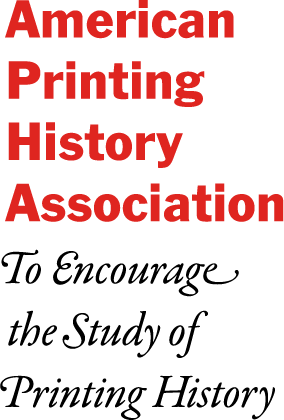Gwido Zlatkes
The 2011 Winner
Gwido Zlatkes on Underground Printing in Communist Poland, 1976–1989
APHA is pleased to announce the 2011 Mark Samuels Lasner Fellowship is awarded to Gwido Zlatkes.
Gwido Zlatkes is now a reference librarian at the University of California, Riverside, Special Collections & Archives. Back in the late 1970s, however, he was involved with experimental theatre, and got swept up in the Solidarity Movement, as a journalist and as an editor and publisher.
In his proposal entitled: “‘Our Gestetner keeps on turning’—underground printing in communist Poland 1976–1989.” Mr. Zlatkes writes:
In the 1970s and 1980s, Poland saw a “paper revolution,” that is, one fought, and won, with (printed) paper rather than guns and bullets. Breaking the communist state’s monopoly on information and restoring free circulation of information and ideas began as pages typed on onionskin with carbon paper and passed around among friends. By the end of 1980s, it evolved into a sizable underground industry. Publishing houses … released several dozen titles per year and developed their own clandestine printing shops and networks of distribution. …. The print runs, as well as the quality of the output, varied vastly from 50–100 copies to 50,000 and more, and from slim books of poetry printed on a “ramka” (the simplest silk-screen printing) to the then top of the line Xerox color print with pages of photographs and professional binding.
Printers, the “black revolutionaries,” are the unsung heroes of this revolution. While virtually all historical writing on Poland under communism pays tribute to (and abundantly quotes from) underground publications, there is very little information on their actual production. What information exists is mostly focused on the editorial side. Printing techniques, the kinds of equipment used and access to it, the organization and conditions of work, obtaining supplies, innovations and inventions, distribution procedures and networks, etc. have not been systematically studied. At present, they are mostly in the memory of the “perpetrators.”
Mr. Zlatkes will use the APHA Fellowship money to travel to Poland this year to gather information and record interviews with some of the “founding fathers” of independent printing in Poland, concentrating on the technical aspects and details of underground printing. Because he knows the language, is acquainted with some of the pivotal figures, and is familiar with the various technologies of printing involved, he is an ideal candidate to execute this project.
The committee was swayed not only by the strength of the proposal and the skills of the proposer, but by the project’s urgency – collecting history which has not been documented (even the presses’ products are scarce, as so many were clandestinely created and dangerous to own), while the participants can still tell their tales. And the focus on printing technologies makes this a highly appropriate project for APHA to support. It also shows that APHA is listening to its own call to save the printing history of the 20th century.
And so we all look forward to hearing and reading Gwido Zlatkes’ account of the underground printing movement in communist Poland which will surely prove to be an important contribution to printing history.
